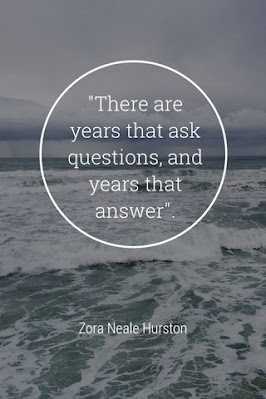I was in a discussion once on social media about navigating the medical system. Someone commented, "It's a full-time extra job being undiagnosed." Tell me about it; I just got out of that maze.
It started with food intolerances; as I'd had a "sensitive" gut since childhood, everything seemed to point to a gut issue... until about two years in, when I started to connect feelings of extreme lethargy and brain fog to physical activity and/or stress (both positive and negative).
Maybe it's not just a gut issue...
I had already started poking at the medical system because of the newly-developed food intolerances, and so I continued to hop around from specialist to specialist--while also regularly visiting a variety of medical professionals to help manage the symptoms-of-unknown-origin. Somewhere along the way, I realized I didn't even care about getting better--I just wanted to know what was wrong.
The anxiety is high when every bite of food feels risky.
The apathy weighs heavy while you wait for the brain fog to clear.
You can start to feel crazy making so many lifestyle changes without a clear idea as to why.
(Thank God for my therapist.)
I was given a diagnosis of IBS in 2020; by then I already knew that it wasn't the only thing going on. In one of my down-the-rabbit-hole, anything-new-I-can-learn-today searches, I came across a list of symptoms on the CDC website that I hadn't seen before. My eyes grew large as I read a list of criteria for which I checked nearly every box. I asked my GP if it was worth looking into, and she referred me on to someone who might be able to answer that question.
Four years, and six specialists later, I have a diagnosis. An internal specialist confirmed that my symptoms and experience tell the story of Myalgic Encephalomyelitis--or, as it's more commonly known, Chronic Fatigue Syndrome. (I will refer to it by its abbreviation, ME/CFS.)
A surprisingly common, yet poorly diagnosed disorder.
 They tell you not to Google your own diagnoses, but at this point in my journey--two gastroenterologists, an internal specialist, rheumatologist, allergist, general surgeon, two dieticians, two naturopathic doctors, my GP, a chiropractor, two acupuncturists, and a massage therapist--we had eliminated and screened for a lot of different things; and, not a single medical professional had even whispered ME/CFS as a possibility. I honestly think it wasn't even in their mental catalogue of options. How long would it have taken to get this diagnosis if I hadn't regularly been checking for new information online?!
They tell you not to Google your own diagnoses, but at this point in my journey--two gastroenterologists, an internal specialist, rheumatologist, allergist, general surgeon, two dieticians, two naturopathic doctors, my GP, a chiropractor, two acupuncturists, and a massage therapist--we had eliminated and screened for a lot of different things; and, not a single medical professional had even whispered ME/CFS as a possibility. I honestly think it wasn't even in their mental catalogue of options. How long would it have taken to get this diagnosis if I hadn't regularly been checking for new information online?!
Diagnosis day was a good day.
ME/CFS is categorized by the World Health Organization as a neurological disorder. When my food intolerances first came about, I felt as if something in my body had short-circuited. Then, with the IBS diagnosis, I learned that part of the issue is mixed signals between the brain and the gut. Now, seeing ME/CFS as a neurological disorder, it really does seem that my circuits are a bit scrambled!
It's not life-threatening.
The internal specialist who diagnosed me said I've been doing everything right so far to manage my symptoms and take care of myself. After my appointment, I promptly joined a couple support groups (one local, one online), and I'm hoping to add more tools to my toolkit as time goes on.
I will keep poking the medical system as needed.
I don't know how much I'll share online--with some exceptions, I tend to keep most of the details of my health experiences to myself and those closest to me. However, I know that there is power in community. I know that advocating for myself is important, and sharing parts of my story may help you advocate for and empathize with others. In essence, I now live with a disability--it's a new perspective on something that's been important to me for many, many years. And, as stated before, this is a poorly diagnosed condition--because (as I'm learning) it is poorly understood and poorly researched. If I can help increase understanding, then perhaps someone in the future will not have to go through four years of emotional and physical turmoil before getting a diagnosis.
They're likely tired enough already.
* Image source: https://steller.co/s/there-are-4dxR2bfkaYN/p/1
